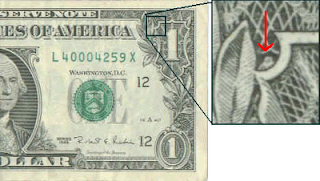 |
| John Milton (1608-1674) at the age of 21. He wrote "Paradise Lost" at the age of 59. |
 |
| Hieronymus Bosch (The Netherlands 1453-1516), Owl, detail from "The Garden of Delights" (1480-1490) |
Until that time in Europe innovators were united by common ideals and politics could not interfere much with their mutual beliefs. Albert Einstein stresses out that Latin as a common language reinforced the power of savants in society. This attitude lasted in Europe until the 17th century - the title of the chapter by Einstein "Paradise Lost" may not be a coincidence belonging to the poem by John Milton to the 17th century. John Milton' book sealed the end of important periods such as the Italian Renaissance,
 |
| Allegory of the Owl from the Famous Contrade of Siena |
What makes it a paradise lost according to Albert Einstein is the fact that since that time politicians have taken the place of savants in the society and have become representatives of international ideas that were once under the intellectuals' surveillance.
This is a concept that Albert Einstein wrote about in the first half of the 20th century. Nowadays Latin is a dead and abandoned language in Italy. Latin is interesting to understand the origin of words i.e. in etymology; for limited usage of scholars in specific fields such as epigraphy. In order to be a lawyer or a doctor, it is not necessary to study Latin in school anymore.
Herewith follows the original text by Prof. Albert Einstein from "The World As I See It":
Paradise Lost
 |
| Semper Solus (tr."forever alone) |
In the same book, Albert Einstein writes about the Italian Renaissance. The chapter is entitled "Society and Personality"). Herewith follows an abstract:
 |
| Official Emblem of the Contrade of the Owl Siena, Italy |
Without creative, independently thinking and judging personalities the upward development of society is as unthinkable as the development of the individual personality without the nourishing soil of the community.
The health of society thus depends quite as much on the independence of the individuals composing it as on their close political cohesion. It has been very justly said that Græco-Europeo-American culture as a whole, and in particular their brilliant flowering in the Italian Renaissance, which put an end to the stagnation of mediæval Europe, is based on the liberation and comparative isolation of the individual." [...]
From the critical essays and the literature available about these distinguished personalities, Albert Einstein and John Milton, it is possible to notice that John Milton and Albert Einstein both wrote out of their passion. They were among the greatest thinkers and promoters of independent thinking.
However, I am wondering if the reference to the "paradise lost" is just a coincidence of Prof. Albert Einstein as a man of humanities or as a freemason. Indeed Prof. Albert Einstein is listed as a freemason among many scientists and important people in the world.
 Despite John Milton was not a freemason himself because of the time limit - the modern organization started as an initiatory order in the early 1700s - there are many descriptions in the poem by John Milton that the Freemasons have used as their manifesto. I wish I knew more about what freemasonry really means or has meant for the United States. This is so fascinating! There are several masonic symbols in the US dollar bills as an example, including an owl which is almost invisible to the naked eye. The owl is also a symbol of secret societies.
Despite John Milton was not a freemason himself because of the time limit - the modern organization started as an initiatory order in the early 1700s - there are many descriptions in the poem by John Milton that the Freemasons have used as their manifesto. I wish I knew more about what freemasonry really means or has meant for the United States. This is so fascinating! There are several masonic symbols in the US dollar bills as an example, including an owl which is almost invisible to the naked eye. The owl is also a symbol of secret societies.I am now thinking of the owl, specifically the "owl of Minerva" (a goddess also known as Athena) and the date in the bill at the foot of the pyramid. This piece of information takes us back to the so-called "Order of the Enlightened" which was founded in Germany in 1776 as a response to the Freemasons and on the same year of the United States of America's declaration of independence.
 |
| Albrecht Dürer (Germany, 1471-1528), Owl, 1508 |
 |
| The owl of Minerva is a symbol of the "Order of the Enlightened" |
****************************************************************************
- Original Posts by Roberta Niccacci -
-----------------------------------------
FRIENDS OF CAMA
Nessun commento:
Posta un commento